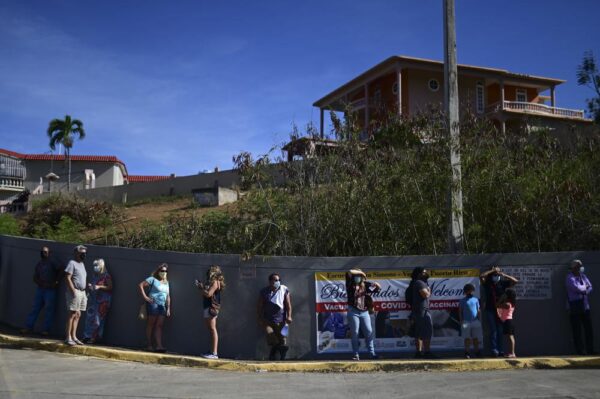Freedom of the Press
Energy Transfer LP v. Greenpeace International, Unicorn Riot
This case in the Minnesota Supreme Court asks whether the MFFIA's protections apply to newsgatherers even if they are alleged to have engaged in trespassing while newsgathering. The ACLU’s State Supreme Court Initiative, alongside the ACLU of Minnesota and law firm Biersdorf & Associations, filed a brief representing Unicorn Riot, a media organization that covered protests of the Dakota Access Pipeline. The brief argues that MFFIA and constitutional reporter’s privileges, under both the U.S. and Minnesota constitutions, protect Unicorn Riot from having to comply with Energy Transfer’s subpoenas.
Status: Ongoing
View Case
Learn About Freedom of the Press
All Cases
4 Freedom of the Press Cases

Puerto Rico
Apr 2023
Freedom of the Press
RodrĂguez-Cotto v. Pierluisi-Urrutia
This case is about whether the government can impose sweeping restrictions on “false alarms” about public emergencies, without specifying what constitutes a false alarm.
Explore case
Puerto Rico
Apr 2023

Freedom of the Press
RodrĂguez-Cotto v. Pierluisi-Urrutia
This case is about whether the government can impose sweeping restrictions on “false alarms” about public emergencies, without specifying what constitutes a false alarm.

Missouri
Feb 2023
Freedom of the Press
Prisoners' Rights
Reporters Committee for Freedom of the Press v. United States of America
Explore case
Missouri
Feb 2023

Freedom of the Press
Prisoners' Rights
Reporters Committee for Freedom of the Press v. United States of America

Court Case
May 2019
Freedom of the Press
+2 Issues
Sandvig v. Barr — Challenge to CFAA Prohibition on Uncovering Racial Discrimination Online
The ACLU has filed a lawsuit challenging the constitutionality of the Computer Fraud and Abuse Act, which makes it a federal crime to access a computer in a manner that “exceeds authorized access.” This provision of the law often prohibits and chills academics, researchers, and journalists from testing for discrimination on the internet. The lawsuit was filed in the U.S. District Court for the District of Columbia in June 2016. The plaintiffs are academic researchers, computer scientists, and journalists who wish to investigate companies’ online practices through standard academic and journalistic techniques, but are limited by the terms of service of target websites.
Explore case
Court Case
May 2019

Freedom of the Press
+2 Issues
Sandvig v. Barr — Challenge to CFAA Prohibition on Uncovering Racial Discrimination Online
The ACLU has filed a lawsuit challenging the constitutionality of the Computer Fraud and Abuse Act, which makes it a federal crime to access a computer in a manner that “exceeds authorized access.” This provision of the law often prohibits and chills academics, researchers, and journalists from testing for discrimination on the internet. The lawsuit was filed in the U.S. District Court for the District of Columbia in June 2016. The plaintiffs are academic researchers, computer scientists, and journalists who wish to investigate companies’ online practices through standard academic and journalistic techniques, but are limited by the terms of service of target websites.
